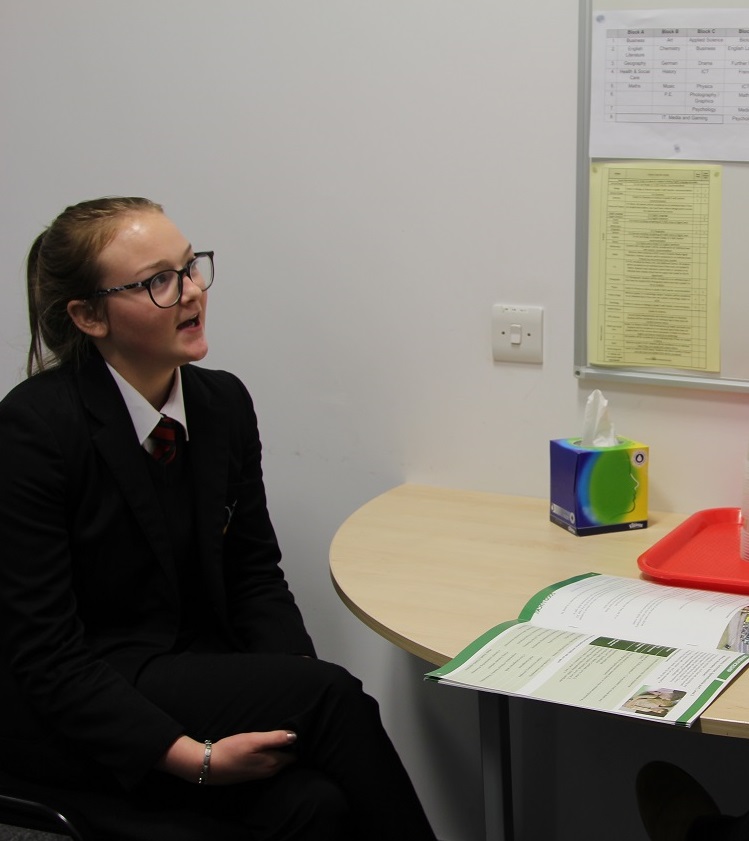Three new education institutions have joined the North East Local Enterprise Partnership’s pioneering Ford Next Generation Learning pilot, which supports careers education in schools and colleges by bringing the workplace and classroom closer together.
Castleview Enterprise Academy in Sunderland, James Calvert Spence College in Amble and Sunderland College, Northumberland College and Hartlepool Sixth Form – which constitute Education Partnership North East – join Excelsior Academy in Newcastle and Churchill Community College and Norham High School, North Tyneside, on the innovative pilot programme that sees students learn through engagement with employers.
Originally piloted in Nashville, USA, the Ford Next Generation Learning model has resulted in an almost 23% rise in graduation rates and significant improvements in attainment, discipline and attendance in the district. It’s since been adopted by more than 30 US school districts.
Michelle Rainbow, Skills Director at the North East Local Enterprise Partnership, said: “The North East region is leading the way when it comes to new approaches to careers education.
“From our successful pilot of the Gatsby Career Guidance Benchmarks to our Education Challenge programme, we have identified new ways of helping young people connect with employers so they have a better understanding of the world of work.
“The Ford Next Generation Learning pilot has been a huge success and I’m delighted to welcome another three institutions onto the programme. Castleview Enterprise Academy, James Calvert Spence College and Education Partnership North East joined us on a recent visit to Nashville to see the model in action and hear from schools and students about the positive impact it’s having.
“Here in the North East we’re seeing an improvement in students’ motivation, oracy, teamwork skills and overall confidence. Students themselves have told us that they now have a much better understanding of why they are studying different topics, through linking the curriculum to real life situations.”
As part of the North East LEP’s Ford Next Generation Learning pilot, which is delivered in partnership with education charity the Edge Foundation, students have worked with employers including Go North East and Great North Run on real life projects that allows them to interact with people who work in businesses in their local area. They’ve also had the opportunity to meet surgeons, engineers and entrepreneurs.
Industry Alignment Support Officers, recruited by the North East LEP, work directly in schools and colleges to help them better engage with local businesses and apply real life work situations to the school curriculum. The North East LEP has appointed three new Industry Alignment Support Officers – Naznin Ahmed, Rachael Church and David Gibson – to work with the new intake of institutions.
Judith Quinn, Deputy Principal, Education Partnership North East, said: “The knowledge and experience gained from our visit and linking in with Ford Next Generation Learning, Academies of Nashville and the partners of the project will enable us to further implement career focussed relevant teaching and learning.
“We look forward to generating further excellence with our employer engagement links to the benefit of our Health and Life Sciences students career progression.
“The positive impact of this innovative project will drive a holistic approach for the development of students’ employability skills including maths and English skills.”
Emma McDermott, Assistant Vice Principal at Castle View Enterprise Academy, said: “The visit was truly inspirational. The opportunity to visit schools in Nashville provided us with a great insight into how employer engagement and vocational education can be integrated into a students’ curriculum.
“Whilst reflecting some of the good practice we have already established at Castle View Enterprise Academy, the visit also highlighted areas for development. For example, the importance of a partnership approach with the wider community right from the outset, from planning stage rather than just working together on the delivery aspect of projects.
“We are excited to see how this project develops the learner experience and our curriculum at Castle View Enterprise Academy.”
James Moore, Head of Sixth Form and Careers at James Calvert Spence College, said: “The international study visit to Nashville with the North East Local Enterprise Partnership in partnership with Ford Next Generation Learning was an amazing opportunity to transform our approaches to careers and curriculum learning.”
Scott Palmer, Ford Next Generation Learning Community Coach, said: “We are really excited to see the partnership with the North East Local Enterprise Partnership expand with a cohort of three new Education Institutions in the North East. We value and appreciate the first cohort of institutions pioneering the way on how the guiding principles of our framework translate to the UK Education System. We learn so much from all of the institutions we work with which will help us to develop our approach and impact as we grow the network internationally.”
Starr Herrman, Ford Next Generation Learning Implementation Coach, said: “As a former Director of the Academies of Nashville, and now as a Ford NGL Coach in the North East, I am thrilled and encouraged to see progress from our Phase 1 pilot to Phase 2 with our new cohort of schools and colleges. There is new energy and intentionality that will allow the partnership of the North East Local Enterprise Partnership, the Edge Foundation and Ford Next Generation Learning to transform education for students, teachers and partners with a community connected approach.”
The Ford Next Generation Learning pilot is part of the North East LEP’s Education Challenge programme, which aims to reduce the gap between the North East’s best and lowest performing schools and to integrate an understanding of the world of work and career opportunities into the curriculum.
Find out more at northeastambition.co.uk/education-challenge.



